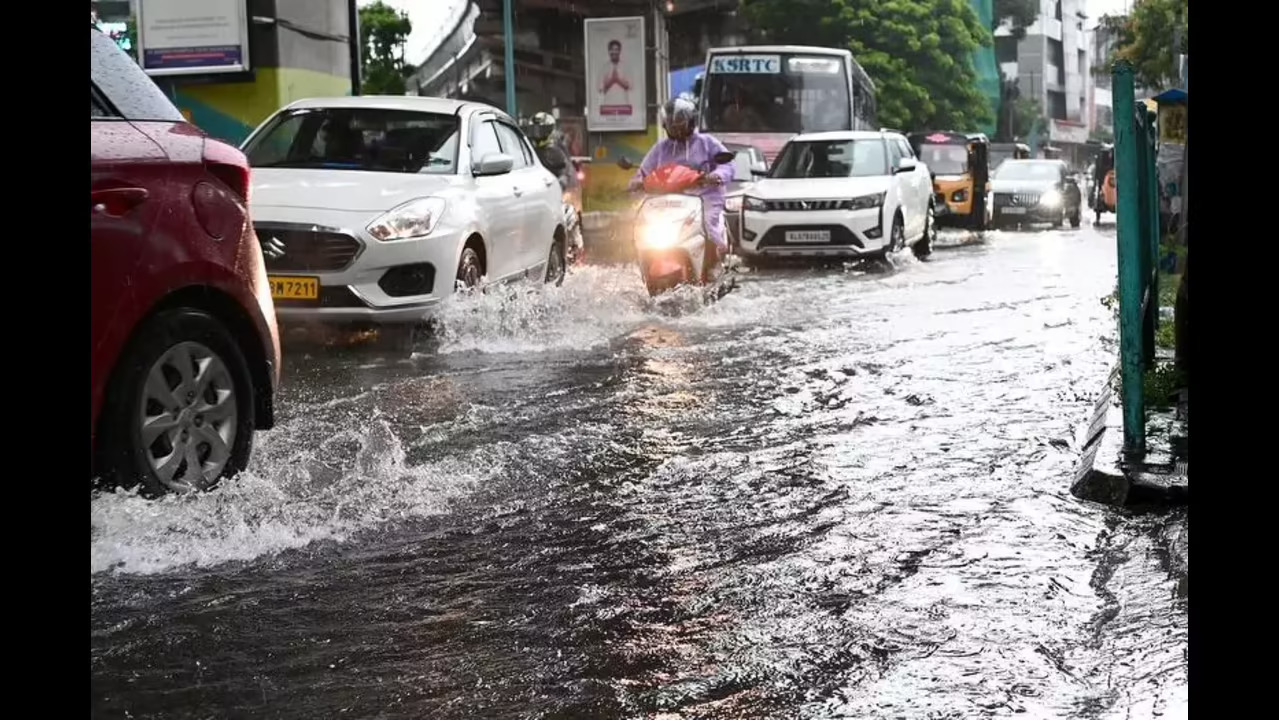Incessant pre‑monsoon showers have once again submerged Hinjawadi’s Rajiv Gandhi Infotech Park, bringing major roads under water, crippling daily commutes for thousands of IT professionals and exposing long-standing infrastructural fragilities threatening sustainable urban living.
The region witnessed over 74 mm of rainfall in a single spell, triggering flash flooding across the IT Park’s arterial roads. Metro construction, incomplete drainage, and clogged culverts from delayed MIDC projects compounded the issue, turning thoroughfares into makeshift canals and Indian eco‑urban dreams into cautionary tales. Vehicle queues stretching six to seven kilometres snarled both ingress and exit routes, marooning commuters for hours. IT workers described roads flooding within minutes and water levels rising to knee‑height, stalling both two‑ and four‑wheelers alike . Many appealed for work‑from‑home extensions, citing physical exhaustion and mental stress. For instance, one engineer recounted a harrowing four‑hour journey home, noting her phone battery died amidst both the inundation and power outage.
Multiple authorities share responsibility: PMRDA, MIDC, PMC, PCMC and Metro planners. PMRDA engineers admit that construction delays, especially of critical culverts by MIDC, were key triggers of the waterlogging. Metro malaise worsened it — narrowed carriageways, debris‑filled trenches, and blocked medians hampered stormwater flow . A PMRDA‑led audit has issued a June 15 deadline for clearing construction debris and opening drainage gaps, with a WhatsApp‑based stakeholder group formed to expedite action. The Forum of IT Employees (FITE) and elected representatives like MP Supriya Sule and MLA Rohit Pawar have strongly criticised the lack of foresight. Sule has questioned the credibility of rain‑preparedness spending across all of Pune, while Pawar dubbed the park a “water‑park” and quipped that boat‑trips might soon be a practical commuting option unless structural changes arrived.
This repeated annual calamity is hampering not only lives but also Pune’s ambitions to become a zero‑carbon, sustainable, equitable smart city. Traffic stalling for hours forces reliance on personal vehicles, increasing carbon emissions; stagnant water hazards threaten public health; stress‑driven work habits undermine worker welfare and gender‑neutral policies; and the persistent infrastructure failures widen civic distrust. Stakeholders now urge a rethink: long‑term hydrological studies, coordinated inter‑agency planning, resilient green drainage systems, and company‑led WFH protocols during monsoon peaks. Pune must embrace climate‑ready, sustainable solutions: porous pavements, bioswales, green medians, retention ponds, and rapid‑response civic monitoring.
Such interventions would cut both congestion and emissions, improve water‑harvesting, reduce gendered stress from perilous commutes, and build trust in urban governance.
Also Read: Mumbai Reveals Why Potholes Return Every Monsoon


